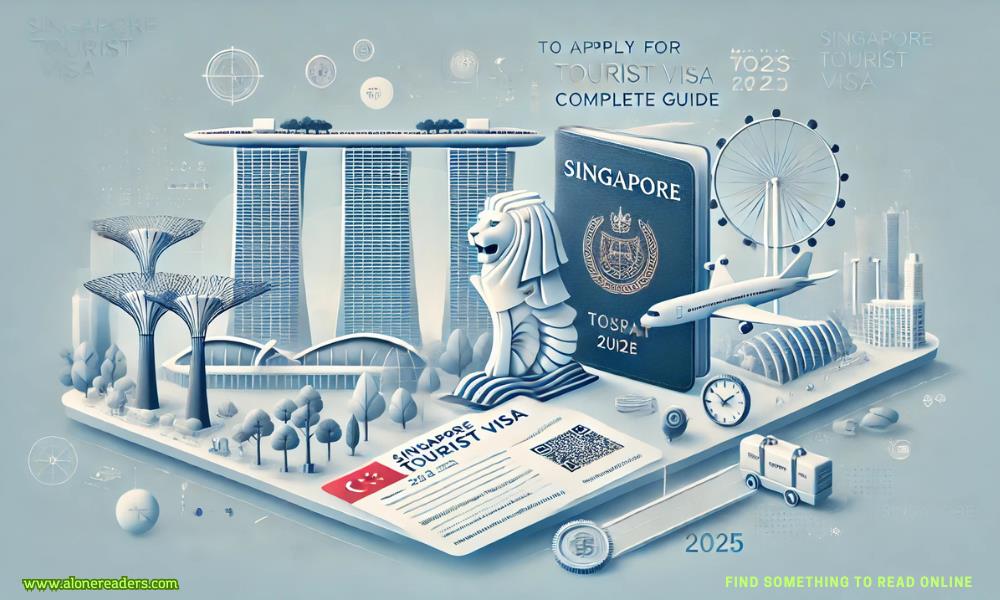Page 5 of In an Absent Dream
“You shouldn’t make so much noise,” said the girl, peevishly. “You’ll attract attention, and I don’t feel like putting on a panto right now, do you?” Her accent was plummy and strange, all out of keeping with her tatterdemalion appearance.
Tatterdemalion. That was a good word. Katherine seized on to it, trying to smother her screams with intellectual curiosity. She had known the word for months, of course, had learnt it in a book she was supposed to be too young to read, but this was the first time she’d seen someone who looked like it could apply to them.
The owl-eyed girl was wearing a patchwork vest bedecked with odd strips of ribbon and fringe over a cream-colored shirt in some rough fabric, with sleeves that had once been longer, before they’d been hacked off just below the shoulders. Her pants were funny, made of dark brown canvas with bright patches on the knees and cuffs, too tight to be fashionable, too short to fit right. She had no shoes, and her toenails were the longest and thickest Katherine had ever seen.
“What’s a panto?” asked Katherine.
“A pantomime, a performance, aplay,” said the girl, looking pleased that Katherine was doing something other than screaming. “If we attract too much attention we’ll need to give fair value for it, and that means a performance or a promise. I don’t have any promises in me this week, and you’re so new you still have that new-penny smell all around you. You shouldn’t be making any promises until you know what they mean, and that’s going to take someone explaining the rules to you.”
Katherine hesitated. “Someone like you?”
The girl’s eyes widened with alarm. “No! No-no-no, someonenotlike me! I’m not equipped for teaching someone how to give fair value, I mean,lookat me.” She spread her hands, which were long-fingered and slim, indicating the sweep of her body. “If I told you what to do you’d wind up in the same boat I’m in, and it’s not a very big boat. Put two of us here and we might sink. No, no, I’ll leave the explaining to the Archivist. But you should come with me, and you should stop asking questions, before you ask the kind of thing with an answer that doesn’t come free.”
“Where am—”
Before Katherine could finish the sentence, the owl-eyed girl was standing nose to nose with her, one hand clasped across Katherine’s mouth. Her skin smelled like cinnamon, underscored with a sharp, unfamiliar herbal note.
“You were about to ask where you were, even though I just told you to stop asking questions,” said the owl-eyed girl. Her voice was low, pleasant, and somehow dangerous. “You were going to keep going, and going, and dig a debt to bury yourself in. Bequiet. Didn’t you see the rules when you came through the passage? Didn’t youread? You can be happy here or you wouldn’t be here. But ‘happy’ doesn’t mean the rules don’t apply to you.”
Katherine stared at her.
“I’m going to take my hand away. You’re not going to ask any more questions. You’re going to follow me to the Archivist, andshecan tell you what ‘fair value’ means, and we can be friends, you and me, if you want to be. All right?” The owl-eyed girl nodded firmly. “All right. I’m letting go now.”
She did. Katherine took a step backward, out of reach, although she knew it wouldn’t do her any good: the girl had moved so swiftly and silently that there had been no evading her. “I didn’t say you could touch me,” she said, and her voice was shrill, edged with panic. “I want to go now.”
The impossible people were still passing, the impossible tents and stalls and wagons were still there, and the air smelled like barbequing meat and sticky fruit pies and this was wrong, this waswrong, this couldn’t behappening—
“Good,” said the owl-eyed girl brightly. “Let’s go.” She grabbed Katherine’s hand and dove into the crowd, dragging Katherine in her wake. Too surprised to struggle, Katherine found herself darting and weaving between the strange figures, most of whom spared the two girls little more than a glance. This sort of thing was apparently commonplace here.
What Katherine hadmeantwas that she wanted to go home, back to a world where things made sense and girls with orange eyes didn’t touch her without permission. But she hadn’t said that, had she? She’d said she wanted to go, and they were going. It was a loophole, one she’d created with her own voice, and she grudgingly respected it, even as she allowed herself to be pulled along.
After a few seconds, she relaxed and started looking around, letting the owl-eyed girl lead the way. There was so much to see, so much to hear and smell and take note of to remember later. Not all the smells were pleasant ones—livestock and too many bodies saw to that—but there were more spices and sweet fruits than garbage piles and outhouses. A rooster crew in the distance. Someone played a fiddle, the tune dancing rapidly from one key to another, climbing like a boy in a fairy tale climbed a beanstalk.
Yes. That was the answer, and Katherine seized on it with both hands. If she thought of this as a fairy tale that she had somehow stumbled into, she could handle it. She knew the rules of fairy tales. Most importantly of all, she knew that fairy tales ended with “happy ever after” and everything being just fine. Better than fine: with everything being perfect. Perfect would be all right. She liked the idea of perfect.
The owl-eyed girl ran until the crowd began to thin around them, until they were past the wagons and the tents and the stalls. She ran until the sounds of people passing were replaced by the warble and caw and screech of birds, until the branches of the trees that were closing in around them—big trees, climbing trees, patchwork trees that looked suspiciously like the one where the door had been—dripped with birdcages instead of fruit. They were filled with birds the likes of which Katherine had never seen before, birds in every color of the rainbow and a few the rainbow itself had forgotten about. The ones shedidrecognize seemed bigger and cleverer than the ones she knew, pigeons the size of chickens, eagles with wings whose span must have been measured in exclamations instead of inches.
Somewhere on their journey through the impossible market, they had stepped onto a narrow ribbon of a path that wound and twisted through those bird-laden trees. At its end was a house. Katherine supposed it was house, at least; it could also have been called a hut, if she was being charitable, and a shack, if she wasn’t. It was too small to be more than one room no bigger than her own, with mossy shingles on the roof and bright geometric designs painted on the walls. A porch ran all the way around it, groaning under the weight of the container gardens stacked from wall to edge, each of them brimming with herbs.
The owl-eyed girl came to a sudden stop a few feet from the door, dragging Katherine to a halt. Katherine stumbled, glaring at the owl-eyed girl, who didn’t seem to notice. Instead, she dropped Katherine’s hand in order to cup her own hands around her mouth.
“Hello, the house!” she shouted. “It’s Moon! I’m outside! I found a new girl! She doesn’t know the rules!”
“I read them,” said Katherine peevishly. “One of them was ‘names have power.’ Should you really be shouting your name like it isn’t anything?”
“That isn’t my name, new girl,” said the owl-eyed girl. Shedidlook like someone who could be called “Moon” without anyone laughing at her. Her face was narrow and her cheeks were flushed, but there was something about her that spoke of midnights and secrets and things no one dared to say during the day. “That’s just what people say when they want to talk about me. Whatever your name is, you don’t give it to anyone you meet here. Promise me.”
“I don’t—”
Once again, Moon was in her face too fast and too silently to have been seen in motion. It was like she’d foregone one place for another without traveling the distance between. “Promiseme,” she hissed. “Your name is your heart, and you don’t give your heart away.Promise.”
“I promise,” said Katherine, wide eyed and suddenly, inexplicably afraid.
“Good.” Moon stepped back.
The door swung open. A woman stepped out.
She was tall. Taller than Katherine or Moon; taller even than Katherine’s father, who was the yardstick she used to measure out the world. Her hair was the color of freshly grated cinnamon, and her skin was the pleasant brown of a sparrow’s feathers. She wore a long white dress with a red shawl tied around her shoulders, and she was beautiful, and she was terrible, and Katherine couldn’t decide whether she wanted to love her or leave her as fast as she could.
- Skin Deep by Lauren Hawkeye
- Sweet Temptation by Lauren Hawkeye
- Between the Lines by Lauren Hawkeye
- Possessing Her by Tory Baker
- The Pack by Sara Fields
- Sinfully Mine by Nikki Landis
- The Bratva's Knocked-Up Forced Bride by Lexi Asher
- Lucky Shot by A.L. Maruga
- Rogue by Lena Bourne
- Dirty Big Sins by E.M. Gayle
- Dirty Little Sins by E.M. Gayle
- Sinful by Stella Hart
- Devil's Riches by Stella Hart
- Cruel Riches by Stella Hart
- Sinful Palace by Stella Hart
- Dangerous Lies by Linzi Baxter







